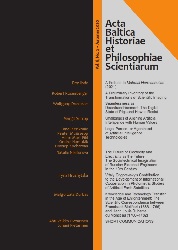Legal Person- or Agenthood of Artificial Intelligence Technologies
Legal Person- or Agenthood of Artificial Intelligence Technologies
Author(s): Tanel Kerikmäe, Peeter Müürsepp, Henri Mart Pihl, Ondrej Hamuľák, Hovsep KocharyanSubject(s): Ethics / Practical Philosophy, Philosophy of Science, Philosophy of Law, Social development, Social Informatics
Published by: Tallinna Tehnikaülikooli õiguse instituut
Keywords: artificial intelligence; ethical and moral; legal agenthood; legal personhood; the missing something argument; practice run;
Summary/Abstract: Artificial intelligence (AI) is developing rapidly. There are technologies available that fulfil several tasks better than humans can and even behave like humans to some extent. Thus, the situation prompts the question whether AI should be granted legal person- and/or agenthood? There have been similar situations in history where the legal status of slaves or indigenous peoples was discussed. Still, in those historical questions, the subjects under study were always natural persons, i.e., they were living beings belonging to the species Homo sapiens. We analyse the situation from moral-ethical and practical perspectives. The final conclusion is that the currently existing AIs are still so far removed from humans that there is simply no need to think seriously about legal person- or agenthood. Doing so would mean imposing obligations on the AI to follow. This, in turn, would mean that certain rights in relation to those obligations would have to be granted as well. By all evidence, this is something that humans are not ready to do yet and might never get that far.
Journal: Acta Baltica Historiae et Philosophiae Scientiarum
- Issue Year: 8/2020
- Issue No: 2
- Page Range: 73-92
- Page Count: 20
- Language: English

